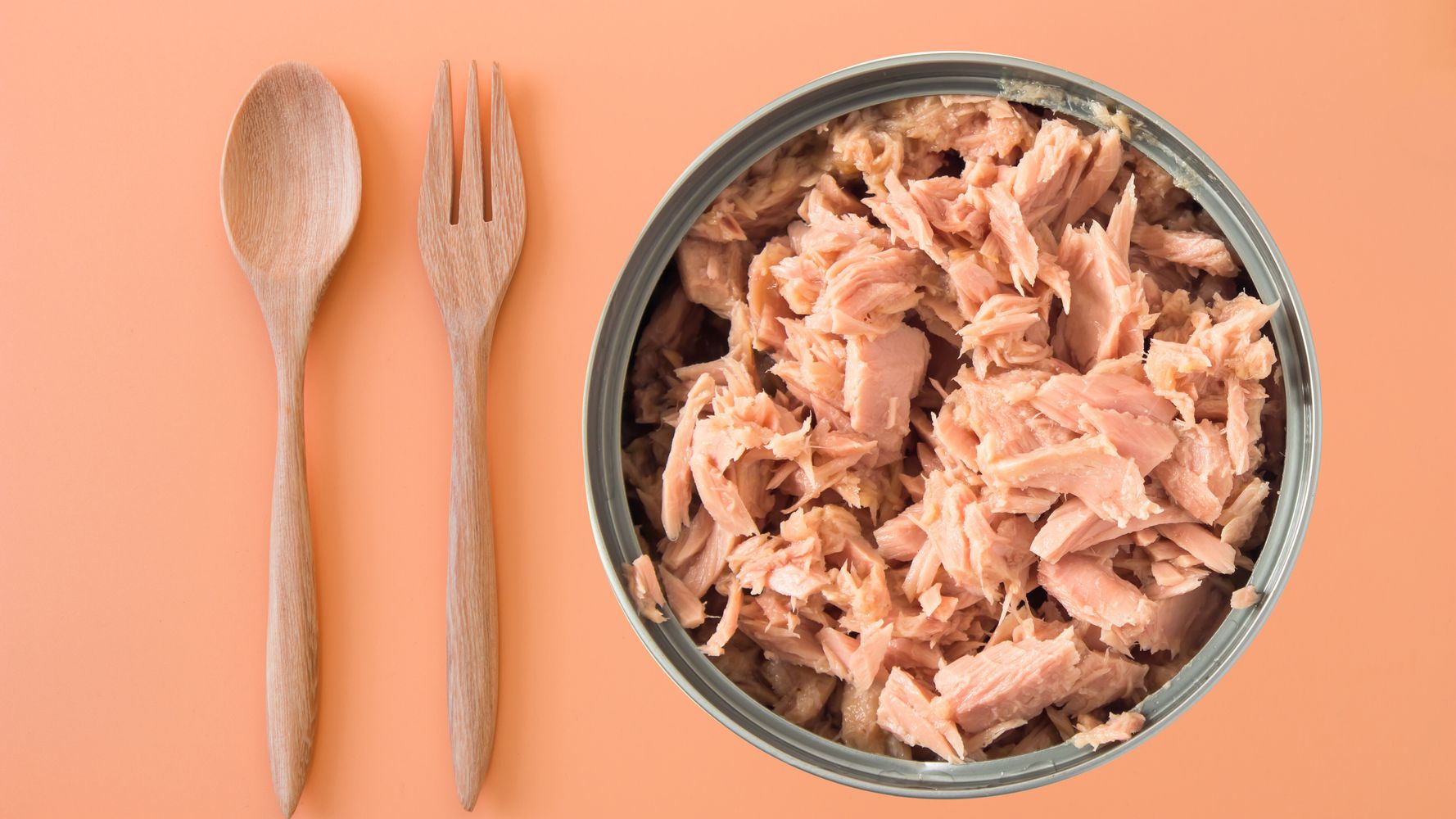
Ever wondered what's packed inside that little can of tuna on your pantry shelf? Well, you're in for a treat! Canned tuna, a staple in kitchens around the globe, isn't just a quick fix for lunch or dinner; it's a nutritional powerhouse. Canned tuna nutrition facts for 100g reveal a surprising array of benefits, from muscle-building protein to heart-healthy omega-3 fatty acids. But that's not all. This compact seafood champion also brings essential vitamins and minerals to the table, making it a smart choice for health-conscious eaters. Ready to dive into the sea of facts about this versatile and nutritious food? Let's crack open the can on the wonders of canned tuna and discover why it deserves a spot in your diet.
What's Inside a Can of Tuna?
When you crack open a can of tuna, you're not just getting a convenient source of protein. This pantry staple is packed with a variety of nutrients essential for maintaining a healthy body. Let's dive into the specifics.
-
Protein: A 100g serving of canned tuna offers a whopping 23.5 grams of protein, making it an excellent source for muscle repair and growth.
-
Omega-3 Fatty Acids: With 0.5-1.0 grams of omega-3 fatty acids per 100g, canned tuna supports heart health and cognitive functions.
-
Vitamins: Canned tuna is a good source of several vitamins, including B12, niacin, and B6, crucial for energy production and maintaining a healthy nervous system.
-
Minerals: You'll find a bounty of minerals such as selenium, magnesium, and potassium in a 100g serving, which aid in various bodily functions from antioxidant defense to muscle and nerve operation.
How Does Canned Tuna Stack Up for Calories?
For those watching their calorie intake, canned tuna is a dream come true.
-
Low Calorie: A 100g serving of canned tuna in water contains roughly 84 calories, making it a lean choice for meal plans.
-
Fat Content: With less than 1 gram of fat per 100g, it's a heart-healthy option that fits well into low-fat diets.
The Heart-Healthy Choice
Canned tuna's nutritional profile makes it a standout choice for heart health.
-
Low in Saturated Fat: With only 0.2 grams of saturated fat per 100g, it's conducive to maintaining healthy cholesterol levels.
-
Rich in Omega-3s: The omega-3 fatty acids in tuna help reduce the risk of heart disease by lowering blood pressure and improving cholesterol profiles.
Supporting Weight Loss Efforts
Canned tuna can be a valuable ally in weight loss journeys.
-
High in Protein, Low in Calories: Its high protein content paired with low calorie count helps promote satiety, reducing overall calorie intake.
-
Versatility: Easily added to salads, sandwiches, and more, it supports varied and satisfying low-calorie meals.
A Boost for Your Immune System
Canned tuna's nutritional benefits extend to supporting a robust immune system.
-
Selenium: With 68% of the daily value per 100g, selenium in tuna boosts the immune response and acts as a powerful antioxidant.
-
Vitamin D: Some canned tuna varieties are enriched with vitamin D, further supporting immune health and bone strength.
Ideal for Athletes and Fitness Enthusiasts
Athletes and those with active lifestyles will find canned tuna especially beneficial.
-
Lean Protein Source: The high-quality protein aids in muscle repair and growth, essential for recovery after intense workouts.
-
Low Fat and Calorie Content: Supports maintaining a lean body mass, crucial for peak athletic performance.
Environmental and Dietary Considerations
While canned tuna is nutritious, there are a few considerations to keep in mind.
-
Mercury Content: Larger tuna species can contain higher levels of mercury, so moderation is advised, especially for pregnant women and children.
-
Sustainability: Opt for brands that practice sustainable fishing to ensure the health of marine ecosystems.
Nutritional Variations: Water vs. Oil-Packed
The nutritional content of canned tuna can vary depending on whether it's packed in water or oil.
-
Water-Packed: Generally lower in calories and fat, making it a healthier choice for those on strict diets.
-
Oil-Packed: Higher in calories and fat, but some find the taste and texture preferable. The type of oil used can also add to the nutritional profile, with olive oil being a healthier option.
Unexpected Nutritional Benefits
Canned tuna has a few surprising nutritional benefits.
-
Iron: Provides about 5% of the daily value per 100g, supporting blood health.
-
Phosphorus: With 24% of the daily value per 100g, it contributes to strong bones and teeth.
-
Choline: Essential for liver function, muscle movement, and brain development, choline is another nutrient found in canned tuna.
Easy and Versatile
Canned tuna is not just nutritious; it's also incredibly versatile and easy to incorporate into your diet.
-
Quick Meals: Perfect for quick, nutritious meals without the hassle of lengthy preparation times.
-
Diverse Recipes: From classic tuna salads to innovative casseroles, the possibilities are endless.
A Budget-Friendly Protein Source
Canned tuna offers great nutritional value without breaking the bank.
-
Cost-Effective: Compared to other protein sources, canned tuna is relatively inexpensive, making it accessible to a wide audience.
-
Long Shelf Life: Its long shelf life means you can stock up during sales, ensuring you always have a healthy protein option on hand.
-
Global Availability: Widely available in supermarkets around the world, canned tuna is a staple food item in many households, offering a convenient and nutritious option for everyone.
A Final Scoop on Canned Tuna's Nutritional Value
Canned tuna, packed with protein, vitamins, and minerals, stands out as a powerhouse in your pantry. With every 100g serving, you're diving into a sea of omega-3 fatty acids, essential for heart health, and selenium, a champion for your immune system. Not to forget, it's a low-calorie option that fits perfectly into various diets, from keto to Mediterranean. Whether you're whipping up a quick salad or a hearty pasta, incorporating canned tuna adds not just flavor but a hefty nutritional punch. Remember, moderation is key, especially considering mercury content. So, next time you're at the store, grab a can or two. It's an easy, affordable way to fuel your body right.
Was this page helpful?
Our commitment to delivering trustworthy and engaging content is at the heart of what we do. Each fact on our site is contributed by real users like you, bringing a wealth of diverse insights and information. To ensure the highest standards of accuracy and reliability, our dedicated editors meticulously review each submission. This process guarantees that the facts we share are not only fascinating but also credible. Trust in our commitment to quality and authenticity as you explore and learn with us.


